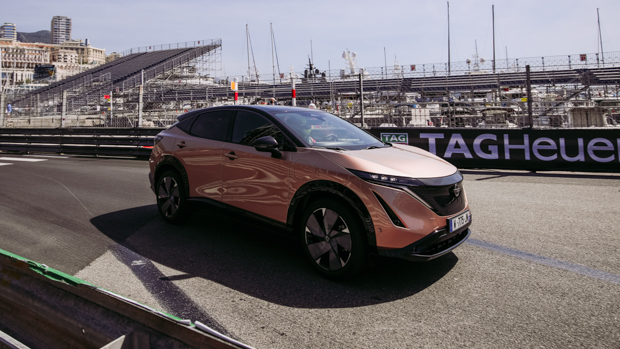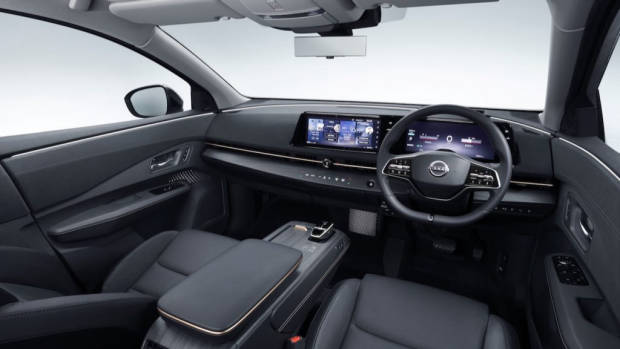-
Car Reviews
- Car News
-
Car Comparisons
Latest comparisons
- Chasing Deals
The Leaf will finally have an electric stablemate when Nissan’s Ariya SUV launches later this year on a bespoke EV platform offering 500km of range
After first being shown as a near-production concept in July 2020, the Nissan Ariya electric SUV is expected to be revealed in full production form shortly, sharing its CMF-EV underpinnings with the electric Renault Megane E-Tech.
Nissan’s midsize electric SUV will mark the next chapter in the Japanese carmaker’s electric future, boasting up to 500km of range compared to just 385km for the longer-range Nissan Leaf e+, and 270km of range for a standard Leaf.
The Ariya will benefit not only from all Nissan’s learnings acquired from developing two generations of Leaf over the last decade, but also the renewed interest in electric vehicles from fellow Alliance members Renault and Mitsubishi.
Those learnings will also help when athletic Alliance brand Alpine is developing its GT X-Over electric performance SUV that will use the same CMF-EV underpinnings as the Nissan Ariya.
As for Ariya’s Australian plans, its launch timing remains unclear, though Chasing Cars expects for Nissan’s first new EV since the circa-2017 second-generation Leaf will arrive here some time in early 2023.
A spokesperson for Nissan Australia said: “We are in ongoing discussions with the global team about Ariya for Australia. It is a brilliant vehicle, we would love to see it for Australia. No further details are confirmed.”
Measuring 4595mm long, 1850mm wide and riding on a 2775mm wheelbase, the Ariya sits directly in the middle of the traditional midsize SUV segment, though with its premium design focus the Ariya EV won’t be pitched as a variant of the fourth-generation X-Trail SUV, or indeed a replacement for it.
The Ariya will be offered with two battery packs – a 63kWh (usable) liquid-cooled lithium-ion battery, and a larger 87kWh pack that extends the headline range up to 500km according to Nissan. The Ariya is yet to be measured according to the official WLTP standard.
Using the same battery, electric motors and underpinnings, the Renault Megane E-Tech achieved a more realistic 470km on the combined WLTP cycle.
Charging for the Ariya is capped at 130kW at DC stations – identical to the Megane E-Tech but behind the best-in-segment 350kW ultra-rapid charging offered by the Kia EV6 and Hyundai Ioniq 5. Still, the Ariya should be able to go from 10-80 percent charge in around 30 minutes.
Entry-level Ariyas will feature a single electric motor sending 160kW/300Nm to the front wheels exclusively, for an expected 0-100km/h time of around 7.5 seconds. When fitted with the larger 87kWh battery, the front-drive Ariya’s power output climbs to 178kW.
The most powerful Ariya scores a second motor in conjunction with the ‘e-4orce’ AWD system that bumps outputs to 225kW/600Nm and should cut the 0-100km/h sprint to around 5.7 seconds.
The Ariya is set to be unveiled in production form next month, followed by a launch in Japan and likely Europe shortly after.
When it does go on sale here, the Ariya will compete against the Hyundai Ioniq 5, Tesla Model Y, Kia EV6 and Polestar 2.
Like the Hyundai and Kia EVs, Nissan’s Ariya is likely to command a premium price. Based on the positioning of the Leaf small EV (starting at $49,990 before on-road costs) and rival electric SUVs, the Ariya is likely to command more than $70,000 for the single-motor variant, with the more powerful dual-motor version priced around $80,000.
Latest news
About Chasing cars
Chasing Cars reviews are 100% independent.
Because we are powered by Budget Direct Insurance, we don’t receive advertising or sales revenue from car manufacturers.
We’re truly independent – giving you Australia’s best car reviews.

